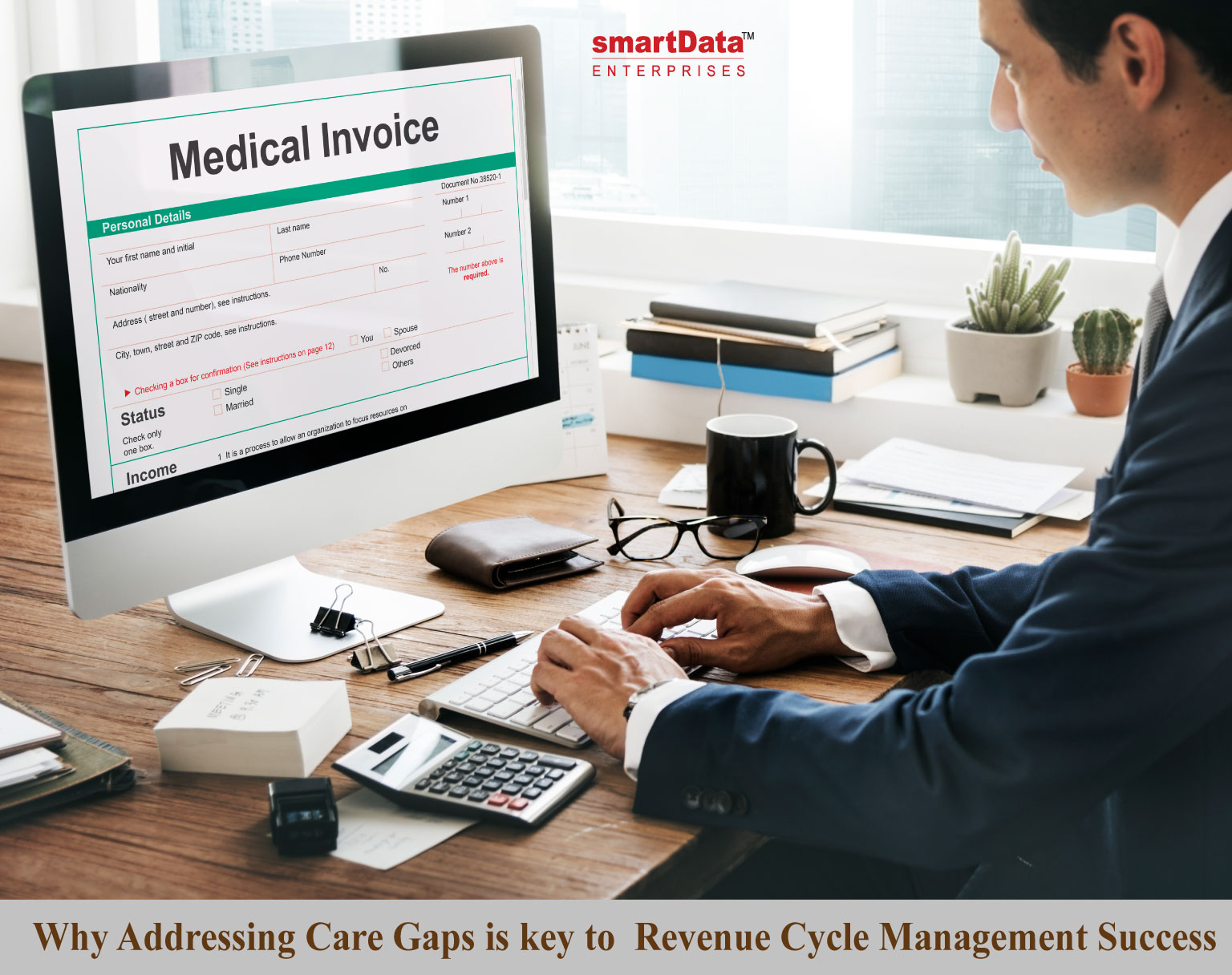
Posted On April 10, 2023
Why Addressing Care Gaps is Key to Revenue Cycle Management Success
Is the care gap an effective approach to assessing overall patient outcomes? Let us understand how important this term is and how it is a good parameter for patients to receive quality care.
Care gaps refer to instances where a patient does not receive a recommended clinical service or fails to adhere to a prescribed treatment plan. Thus, it has a significant impact on revenue cycle management resulting in increased healthcare costs, reduced reimbursements, and lower patient satisfaction.
This write-up will help you understand the importance of quality care and take appropriate measures to keep it on track. Let’s go over it.
Importance of an effective Revenue Cycle Management
RCM (Revenue cycle management) is a critical aspect that involves various financial processes from appointment scheduling to payment collection. Here we will examine some pain points that will significantly express the need for this management. Let’s go through it.
- Improved Quality of Care
An effective RCM system can help providers to track patient outcomes and monitor the quality of care. This can be achieved by integrating clinical and financial data, enabling providers to identify trends, analyze outcomes, and make data-driven decisions to improve patient care.
- Better Patient engagement
To improve patient engagement, RCM plays a prominent role by providing patients with transparent billing information and enabling them to manage their healthcare expenses. Patients who are engaged in their care are more likely to adhere to treatment plans, take their medications as prescribed, and follow up with their healthcare providers regularly.
- Early Identification of Issues
It enables providers to identify issues early before they become major problems. It helps providers identify patients who are at risk for non-payment, enabling them to proactively address these issues and prevent the patient from being sent to collections.
- Improved Revenue
An Effective RCM system can help healthcare providers improve their revenue by reducing the number of denied claims, improving the accuracy of billing and coding, and reducing the time it takes to collect payments.
- Reducing the Risk of Denials and Rejections
One of the primary reasons to adopt revenue cycle management success is that it can help reduce the risk of claims denials and rejections. Care gaps can lead to incomplete or inaccurate documentation, which can result in claims being denied or rejected by insurance companies.
Impact of Care Gaps on Revenue Cycle Management
Care gaps are key to revenue cycle management success because it significantly impacts the financial health of healthcare organizations.
When care gaps are not addressed, patients may require additional medical services or interventions, which can lead to longer hospital stays, increased utilization of resources, and higher costs. This, in turn, can lead to a decrease in revenue for healthcare organizations.
To mitigate the impact of care gaps on revenue cycle management, healthcare organizations can implement processes to identify and address care gaps proactively. This may include leveraging technology to identify patients who are due for recommended services, implementing care coordination programs and providing education and support to help patients adhere to treatment plans.
How smartData took a great step for Quality Care of Patients
We harness the power of technology to create highly customized & innovative healthcare software solutions to keep up with the demands of an ever-evolving industry.
As a trusted healthcare company, we are working on HEDIS quality measure reporting rules driven by data extracted from more than 15 EMR systems. This platform helps in remediating the gaps and enhancing the efficiency of HEDIS reporting.
Our solutions combine clinical data, claim records and care management data from different EHRs on a single platform to unlock unprecedented insights into population health care, readmission, quality & cost. It also helps to coordinate and identify care gaps & track progress efficiently.
We worked on various projects based on health data, HEDIS, and OHC that emphasize better health outcomes by identifying care gaps and offering better care coordination.
At smartData, we are helping multiple customers to optimize their revenue cycle management to foster the revenue of their organizations along with providing a better experience to the patients.
Connect with us to know more about the automation of revenue cycle management and own your solution today.
Conclusion
As the healthcare industry is adopting new trends and methodologies, improving the care gap became greatly important. By identifying and addressing care gaps, healthcare providers can ensure that patients receive timely and appropriate care. Healthcare providers can also leverage technology and data analytics to identify and address care gaps, allowing for more efficient and effective care.
To get appropriate healthcare outcomes, our team will help you with the top services to make your systems highly accessible for the end users. Choose us now to get quality-based care.
